Four days after leaving the hospital from my heart bypass surgery, I met for the first time with a nurse practitioner at the office of my “functional medicine” MD, Dr. Jose Fernandez who was recommended to me by my chiropractor. She told us to purchase a $30 blood pressure monitor and check my blood pressure morning and evening. I did. You can also purchase one from Amazon.
I saw it steadily going down, which concerned me. So I called the hospital where the surgery was performed and talked to the head nurse on the floor I was on. She informed me the first of the two numbers given in a blood pressure test is the number to be concerned about and it should not go below 90 (I was still at 92.) The first number (systolic) is your blood pressure when the heart beats and pressure is exerted in the arteries, and the second number (diastolic) is blood pressure between each heartbeat when the heart is at rest and not pumping blood into the arteries.
One value of taking your blood pressure at home is that other family members can also take their blood pressure and you will discover if their BP is too high or too low. It was interesting that even though my wife and I eat the same diet, her BP was high and mine was low. So obviously there is more than diet at work when it comes to dealing with BP.
Another advantage of taking your blood pressure at home is you can keep a log of your readings and notice what may influence it to go up or down. Your healthcare provider can be better prepared to adjust your medications if they can see a history of your blood pressure readings.
Three weeks later I fainted and was taken back in the hospital where they did 48 hours of tests, determining nothing major was wrong but that I just needed to cut back on the blood pressure medicine. They took me off one of them and cut another one in half. They also recommended I call my cardiologist about quitting the aspirin regiment as it was a contraindication to another medicine I was on.
They also gave me this key information: Never cross your legs when taking your blood pressure. Have your feet flat on the floor. Sit relaxed and calm for a few moments before taking your blood pressure. Normal blood pressure is below 120/80. Excellent blood pressure is 100/65 (ranges may be lower for children and teenagers). 90 over 60 is generally considered low blood pressure. Here is a chart on blood pressure according to age and gender.
After returning home from the 48 hours in the hospital, I reviewed my blood pressure numbers which I had been recording morning and evening on a chart. I discovered that for the four days prior to fainting, my diastolic blood pressure had stayed consistently below 60. In addition, I had felt for three days that my health was declining rather than advancing. On the final morning, just before fainting, I had felt dizzy after bending over, and I had to sit down for a couple of minutes. However, then I went for a 2-mile bike ride in the hot sun, and that was too much exercise and too much stress, as halfway through it I felt dizzy, got off my bike, and then fainted, falling over in the grass. My wife flagged down a car driving by and I was given an air conditioned ride back to my home where I was met by the ambulance and paramedics and then taken to the hospital for two days of testing.
One interesting technique I learned during my 48 hours in the hospital was to test my blood pressure three times in a row, with a 2-minute waiting period after each test. Test one is lying down. Test two is as soon as I sit up. Test three is as soon as I stand up. When you change position you can have what is called orthostatic hypotension, which means your blood pressure can go down quickly and you should sit up or stand slowly to prevent this. You are looking to see if there is a drop below 90/60 in any of these three tests, especially if coupled with dizziness.
So returning home, I watched my numbers carefully, and even though I cut out all blood pressure medicine, my diastolic number remained below 60 for 3 out of 4 of my next four morning and evening tests. I called the hospital and they said I was fine, just be careful and watch for dizziness. So I decided to exercise in an air conditioned gym in our community by walking on a treadmill for 30 minutes as I covered 1.25 miles. I did not get dizzy so I concluded this is much better than a bike ride in the hot sun.
While asleep that night, the Lord gave me the following ideas: Check for any nutrients I am taking and any foods I am eating and discover which ones lower blood pressure.
Here are some of the foods and nutrients that research shows lower blood pressure (click on hyperlinks to discover the research), and I was consuming all of these: dark chocolate, garlic, vitamin D, magnesium, flaxseed, fruit, vegetables, grape seed abstract, Pycnogenol, vitamin C, Omega 3, Cocoa, Pomegranate, green and black tea, Resveratrol, Coenzyme Q10, Sesame seeds, fiber, watermelon, berries, pine bark extract, coffee, Curcumin, Coconut, Stevia.
Here is a list of 283 substances researched for high blood pressure (Also available at this link are “45 problem substances” and “38 therapeutic actions” concerning blood pressure). So for the person wanting to lower blood pressure naturally, act on the research on these three lists. Since I want to raise my blood pressure, I need to cut back on consuming so much of these items.
Life Extension has excellent articles on high blood pressure as do Mercola and Dr. Axe. Mercola makes a distinction between salts: "Processed (table) salt is health harming, while natural unprocessed salt is not only healing, but in fact essential for many biological functions." We have purchased Himalayan Crystal Salt for years.
Cardiac Event Series
- How Could I Have Been So Wrong?
- Biblical Truths Related to Heart Disease
- Causes of Heart Disease: Inflammation, Oxidation, Sugar and Stress
- Drugs, Nutrition and the Lord
- Is Stress The Number One Cause Of Heart Attacks?
- Ever So SLOWLY Learning About Blood Pressure
- Common Denominators of Great Diets
- God Says I’m Healed Yet Symptoms Persist
- Symptoms Go into Remission as I Speak to My Body
- Does Heart Surgery Cause the Heart to Pick Up A Spirit of Fear
- Must I Work Hard To Be Successful?
- Which of The 10 Commandments Can You Break And No One Raises An Eyebrow?
- Experience Rest By Learning How To Delegate
- Living In Rest Requires Living At Peace With Myself and Others
- For Heaven’s Sake, Celebrate!
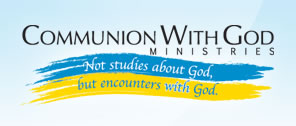

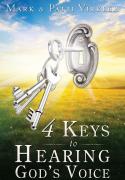
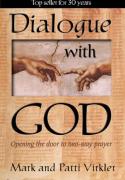
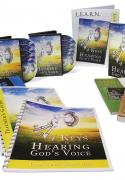
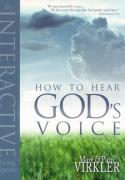
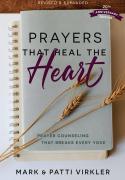
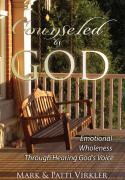
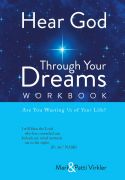
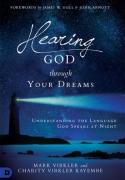
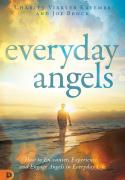
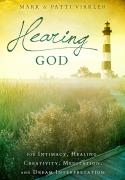
Comments
Thanks
by Mark Virkler
Donald,
Thanks. Thas is something I will keep in mind. Appreciate your input.
Heart Attacks
by Donald Young
Hi Mark;
I had a heart attack about 20 years ago, and required bypass surgery to correct a blockage. My diet was good. My physician was puzzled about causes. I had low stress, and did some walking for exercise. About eight years ago, I was diagnosed with sleep apnea. I have always seemed to need more sleep than other people, and seemed to tire easily. Now with a CPAP machine at night, I sleep more soundly and my energy level is much better.
I say this because sleep apnea is considered a risk factor for heart disease. I didn't know this at the time of my heart attack, and it appears my doctor didn't either. I now suspect the sleep apnea was derfinitely a factor in my heart attack.
You may wish to check this out. A sleep test at a sleep lab will confirm any sleep apnea. A doctor will quiz you about sleep patterns and may recommend a sleep test.
God bless,
Donald Young
We lost three comments when we tried to post them
by Mark Virkler
If you sent a comment in the last week, and it is not posted here, it is because we lost it. Please resend it and we will post it. thank you.
Orthostatic hypotension
by Dr. Leeland Jones
To keep from fainting: on standing up inhale as you stand up. Make sure you’re not dizzy or lightheaded before you take the 1st step. This keeps blood from leaving your head too fast.
Qardio blood pressure monitor
by Roger B R
Hi Mark,
I had been taking my blood pressure intermittently over the last number of years. Just over a year ago I bought a new monitor which I am really happy with, the Qardio Arm. No need for a manual chart, as it tracks your blood pressure on your smart phone and the results can be emailed to your doctor. It also displays a graph of daily, weekly and monthly averages, and warns of irregular heartbeat. It is compact and can be taken with you when travelling. I had my doctor compare its reading with hers, and it was accurate. As it turns out, it indicated in April that my blood pressure went up significantly, even though I watch my diet, exercise, etc. I ended up having to take mild blood pressure pills. Anyway, another handy tool for monitoring health, as blood pressure is called "the silent killer," as many people are not aware of their blood pressure. Here's the link (it is safe - not spam); http://shrsl.com/19tog-1d3j-hokr
Add new comment